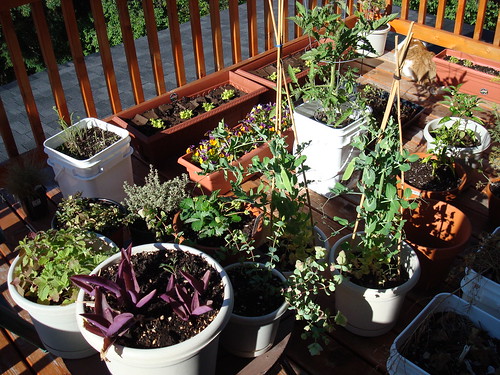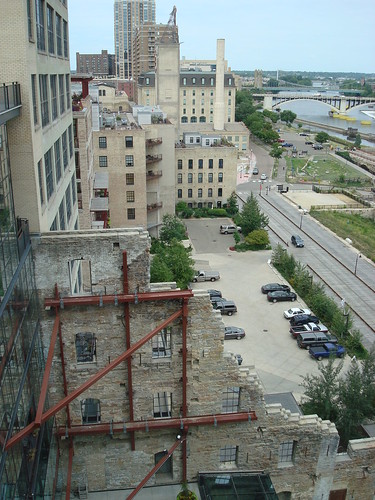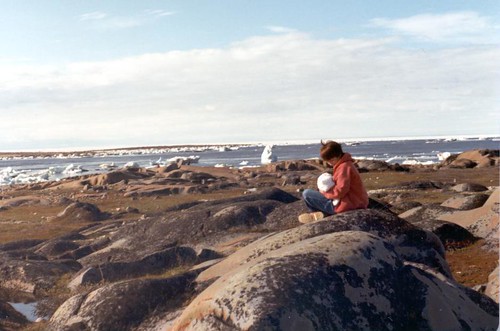David Suzuki has me inspired. Not just to build an organic garden, but to build programs and projects that are worthy of the technology available to us.
The David Suzuki Digs My Garden project used Flickr and online video as a way to make this contest a little bit different. From across Canada people entered their gardens by uploading their images to the
official contest Flickr group. To enter the contest I joined the group and added my
own garden images that were already posted on my own Flickr group.
On my own image I was able to tag all of the different plants in our pesticide free garden - from the tango lettuce to the organic catnip to our cat Mister T. Online programs are about presenting, storing and registering information in ways that were not previously possible.
Not only that but we also received a really cool video thank you from David Suzuki as well. This is how new projects can use technology in a collaborative and inspiring way. By sharing gardens from across Canada we not only created a historical record of gardening in the year 2008, we also provide a knowledge exchange.
Strangely enough at the same time another photo on Flickr was also being targeted by an online collaborative project.
Schmap is a digital map program that provides information about cities from around the world.
The map makers from the city of Minneapolis had taged two of my photos from our trip to the city this past summer. The photos had been chosen for a contest (there is always a hook) and they would like to know if I would be interested in entering the photo. The "winning" images will be used for a photo guide to the city.
Like most folks I'm happy to have the pictures used and happily clicked yes. Together all of these images can form a collaborative project, from hundreds of people. Not only that, suddenly I know Schmap exists, I'm going to tell my friends to all go and look for my picture, and maybe I will use this website in the future.
By giving me a role and involvement, by helping me feel like a collaborator rather than a user, I suddenly am considerably more connected to this website.
 Click on the link and try putting your own historical documents into Wordle - let's see what other results we can come up with.
Click on the link and try putting your own historical documents into Wordle - let's see what other results we can come up with.


